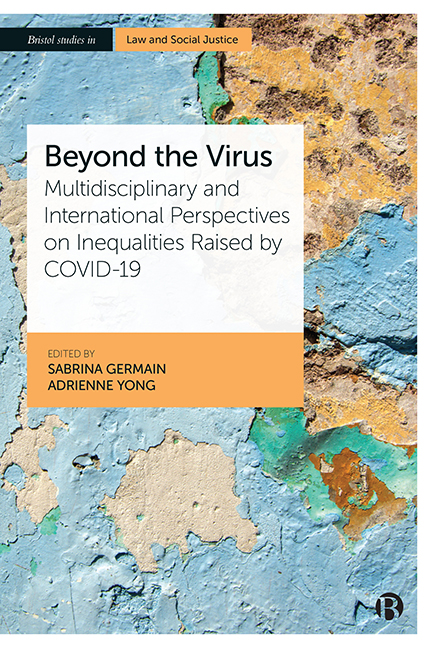 Beyond the Virus
Beyond the Virus 6 - Beyond Privacy: South Korea’s Digital Technology-led Policy on COVID-19 and Its Impact on Human Rights
Published online by Cambridge University Press: 17 January 2024
Summary
Introduction
The South Korean government’s policy against COVID-19 is considered a success. South Korea was cited as one of the particularly notable countries having the best strategy and response tackling the pandemic with relatively low cases per capita from COVID-19. It has flattened the curve and maintained lower fatality rates without implementing radical measures or resorting to strict border control and a complete lockdown of its citizens (Yoon, 2021). As of 30 September 2021, the total death count amounted to slightly over 2,000. Also, as one of the few countries that held a national legislative election amid the pandemic, South Korea, has been recognized by foreign media, health experts and political leaders as an exemplary case of a nation successfully managing this global crisis (Yang, 2021). While various factors have contributed to this success, the South Korean government’s new digital technology-led policies, including thorough contact tracing, diagnostic tests and prompt disclosure of COVID-19-related information such as data on the movements of confirmed cases, played an important role (Oh, 2020).
Based on international human rights treaties such as Article 12 of the International Covenant on Economic, Social and Cultural Rights (ICESCR), states are required to have robust public health surveillance measures to safeguard the rights to life and health. The General Comment No 14 of ICESCR stipulates that such measures include ‘States’ individual and joint efforts to, inter alia, make available relevant technologies, using and improving epidemiological surveillance and data collection on a disaggregated basis, the implementation or enhancement of immunization programmes and other strategies of infectious disease control.’ In the same vein, the World Health Organization maintained that those new digital technologies support rapid reporting, contact tracing, and data management and far more easily enable governments to identify disease outbreaks (WHO, 2021).
Indeed, South Korea’s response to the COVID-19 crisis relied extensively on advanced digital technology to maximize efficiency. South Korea actively implemented top-down digital measures through its centralized disease control system referred to as K-Quarantine. The South Korean government used the term to push for international standardization.
- Type
- Chapter
- Information
- Beyond the VirusMultidisciplinary and International Perspectives on Inequalities Raised by COVID-19, pp. 119 - 136Publisher: Bristol University PressPrint publication year: 2023
